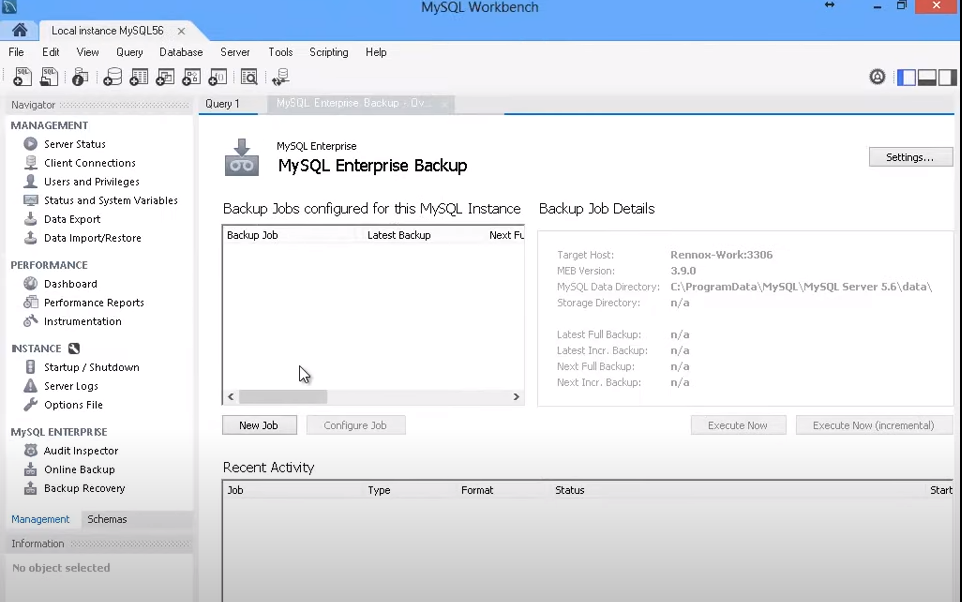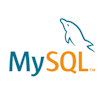MySQL
About MySQL
MySQL Pricing
MySQL offers a free trial for new users, after which the software is available across 4 commercial editions. Pricing and functionality are outlined below. MySQL Cluster Carrier Grade Edition Subscription (1-4 socket server): starts at $10,000 per year MySQL Cluster Carrier Grade Edition Subscription (5+ socket server): starts at $20,000 per year MySQL Enterprise Edition Subscription (1-4 socket server): starts at $5,000 per year MySQL Enterprise Edition Subscription (5+ socket server): starts at $10,000 per year MySQL Standard Edition Subscription (1-4 socket server): starts at $2,000 per year MySQL Standard Edition Subscription (5+ socket server): starts at $4,000 per year MySQL Classic Edition (only available for ISVs/OEMs)
Starting price:
$2,000.00 per year
Free trial:
Available
Free version:
Available

Most Helpful Reviews for MySQL
1 - 5 of 2,055 Reviews
Frank
Computer & Network Security, 11 - 50 employees
Used more than 2 years
OVERALL RATING:
5
Reviewed October 2021
MySQL
Ravindu
Verified reviewer
Information Technology and Services, 11-50 employees
Used daily for more than 2 years
OVERALL RATING:
5
EASE OF USE
5
VALUE FOR MONEY
5
FUNCTIONALITY
5
Reviewed July 2019
A thought on MySQL
As currently I have developed inventory system, clinic system, an backend application for a private company to manage huge no of memberships and ads, and a UK company for manage Business Name , Limited company, trademark and domain registrations and renewals. All of these used with mysql its those are running smoothly. Never had any headaches as through sql queries can manipulate easily and had fast responses for even complex queries and for huge no of data Frameworks used are spring boot and laravel.
PROSKnown and used by most people as most secure and reliable relational database management system. Accompanies 99.99% uptime. Nothing to fears as open source. Can have millions of helps through community. Offers a wide scope of high accessibility like cluster servers master slave replication. Provides high performance even for large volume projects. Growing and improving frequently. Best for cloud applications and big data applications. Supports by huge no of frameworks.
CONSRed Hat Enterprise Linux, openSUSE, Fedora, Slackware Linux etc moved to MariaDB.
Reason for choosing MySQL
Relational Database, Free of charge, unlimited help from community. Light weighted, Supports by huge no of frameworks.
Emiliano
Verified reviewer
Information Technology and Services, 201-500 employees
Used daily for more than 2 years
OVERALL RATING:
5
EASE OF USE
4
VALUE FOR MONEY
5
FUNCTIONALITY
4
Reviewed May 2021
MySQL has always been one of the best relational databases
Many of our relational databases work nowadays with MySQL, we find it easier to maintain than PostgreSQL or other alternatives, as well as it's knowledge more broadly distributed due to it being very beginner friendly for web projects, joined with PHP usually.
PROSFirst of all there's a free community version, as well as alternative software like MariaDB and Percona Server which have an open-source approach as well. There are multiple services to manage MySQL like Amazon RDS as well as similar products on GCP or Azure, so it's not entirely required to have expert knowledge to use these databases if you are willing to pay for support.
CONSThe upgrade process for MySQL requires downtime and it's not easy to perform a rollback either (on some cases it's entirely impossible unless you restore a backup). Managed services don't provide a zero-downtime upgrade process either, except for migration all your info and deltas into a new database (which sometimes is not entirely available)
Reason for choosing MySQL
We find it easier to maintain than PostgreSQL and also more teammates felt comfortable with this software since they were quite familiar with it and possible debugging on the future.
Anonymous
1 employee
Used daily for more than 2 years
OVERALL RATING:
3
EASE OF USE
4
VALUE FOR MONEY
5
CUSTOMER SUPPORT
2
FUNCTIONALITY
3
Reviewed April 2019
Almost all my sites run on MySQL
I hardly think about MySQL because that is how it functions - quietly and in the background 24/7. But MySQL is an totally ESSENTIAL part of my online presence, as my websites would immediately cease functioning without MySQL. It is that important! While it does its job most of time, if there are errors in MySQL for whatever reason, then to repair the problem can become a bit expensive. Apart from this small risk, MySQL is one of those "must-have" software if you run any independently hosted websites online.
PROSMySQL is the standard database software used by virtually all the PHP-based scripts for database creation and functioning. It is a standard add-on software for most webhosts as part of the cPanel plan. As long as you are not hacked, the database software works quietly in the background 24/7 and delivers your website to the world. As an "add-on" software it is free in that sense (or may be part of my monthly hosting fees), but this is a trivial point. MySQL is like a set-and-forget kind of software, and indispensable to nearly all webmasters.
CONSThe database is not very efficient, and this often leads to errors, if some script overloads it or if your website is hacked and compromised. If there is too much traffic, things also can break down. As anything database related is hard to repair, it is best to get an expert on MySQL, who can be expensive, to fix any issues in the database. Many additional plugins create further tables or rows in MySQL which remain there for life even if the plugin is removed later on. This leads to bloat in the database.
Enrico
Verified reviewer
Translation and Localization, 201-500 employees
Used daily for less than 2 years
OVERALL RATING:
4
EASE OF USE
4
FUNCTIONALITY
5
Reviewed January 2024
Quick and easy database management solution
We set up a MySQL database to store and query data from our application, which writes daily to the DB. We never had any issue with it, which is just great.
PROSMySQL consistently delivers exceptional performance, making it an ideal choice for a wide range of applications, from small-scale projects to large enterprise systems. Its optimized query execution, indexing mechanisms, and caching strategies contribute to efficient data retrieval and manipulation.
CONSFine-tuning settings for optimal performance can require in-depth knowledge, and improper configurations may impact system stability.





